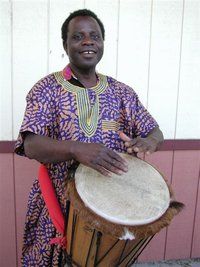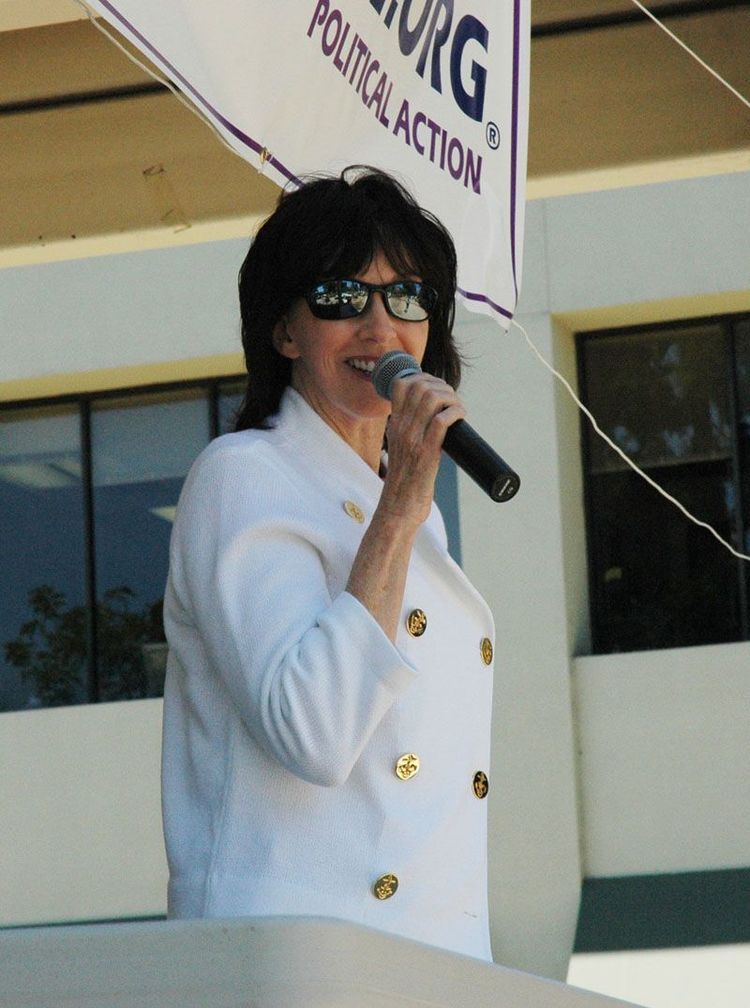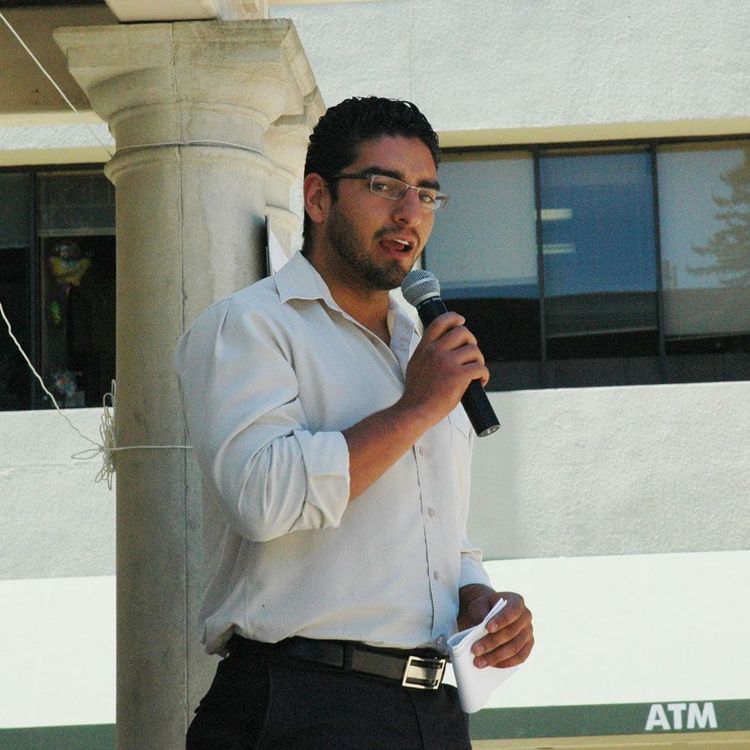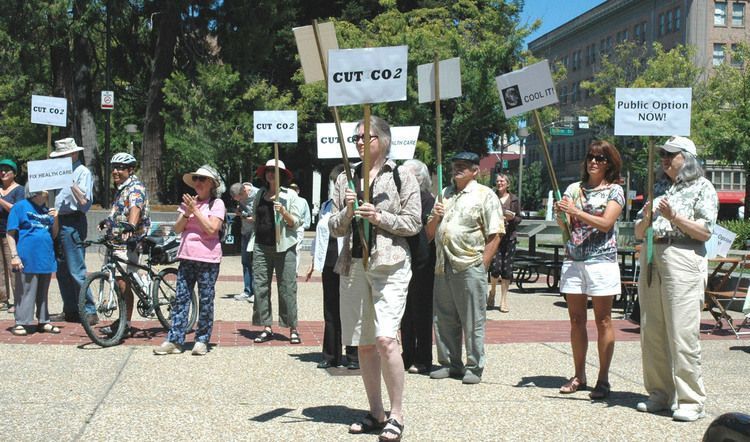 A new plan to bring baseball back to the North Bay envisions a short summer league with a dozen teams of mostly local players, and a rolling set-up to dress up existing ball fields in area parks.
A new plan to bring baseball back to the North Bay envisions a short summer league with a dozen teams of mostly local players, and a rolling set-up to dress up existing ball fields in area parks.
{mp3remote}http://media.krcb.org/audio/nbr/7-28-09.mp3{/mp3remote}

The proposed Wine Country Old Fashioned Baseball League is the idea of Dry Creek Valley winery owner Howard Leonhardt (left), who says he developed it after he was unable to purchase an existing minor league team and relocate it to Sonoma County.
{mp3remote}http://media.krcb.org/audio/nbr/buyteam.mp3{/mp3remote}
Three months after he was seized and nearly deported, a Santa Rosa man has been released to rejoin his family, and recover from his experience inside the privatized detention facility.
{mp3remote}http://media.krcb.org/audio/nbr/7-27-09.mp3{/mp3remote}
 KRCB previously reported on Okili's arrest on May 21, here.
KRCB previously reported on Okili's arrest on May 21, here.
Because Okili has not only tried to play by the rules as far as his visa was concerned, but has also become an active and constructive member of the community, Sabrina Krause remains convinced that when they are finally able to explain his circumstances to a judge, that background will make a convincing case for him.
{mp3remote}http://media.krcb.org/audio/nbr/family.mp3{/mp3remote}
At one point during his detention in Eloy, Arizona, Okili was very nearly deported in spite of the frantic efforts to obtain his release. He recalls that he was actually at the airport, just minutes away from boarding the plane that would have taken him to Europe, when he was spared by a last-minuts intervention.
{mp3remote}http://media.krcb.org/audio/nbr/stopped.mp3{/mp3remote}
The treatment of detainees at Eloy was subtly abusive, Okili says, from barely edible food to ill-fitting shoes that took weeks to get replaced.
{mp3remote}http://media.krcb.org/audio/nbr/shoes.mp3{/mp3remote}
The profit motive affects many aspects of the operation of that privatized detention facility, from policies that prolong the detainees stay there, boosting per diem revenues, down to exorbitant charges for telephone contact with the outside world.
{mp3remote}http://media.krcb.org/audio/nbr/calls.mp3{/mp3remote}
 Health Care reform and a forward-looking energy policy are not competing subjects in need of Congressional action, but interlocking national priorities, said speakers at a Santa Rosa rally yesterday.
Health Care reform and a forward-looking energy policy are not competing subjects in need of Congressional action, but interlocking national priorities, said speakers at a Santa Rosa rally yesterday.
{mp3remote}http://media.krcb.org/audio/nbr/7-24-09.mp3{/mp3remote}

Sebastopol City Council member Kathleen Shaffer (left), spoke out strongly in support of the health reform plan endorsed by President Obama, and the much maligned "public option" within it.
{mp3remote}http://media.krcb.org/audio/nbr/publicoption.mp3{/mp3remote}
Photos courtesy of John Hartong

Another speaker at the rally, Sonoma County Supervisor Efren Carrillo, defended proactive climate change legislation as a potential engine for economic, as well as environmental benefits.
{mp3remote}http://media.krcb.org/audio/nbr/future.mp3{/mp3remote
The Santa Rosa rally was one of many scheduled across the country yesterday by MoveOn.org.


Budget cuts resulting in faculty layoffs and reduced course offerings are inescapable at Sonoma State University for the coming year; the remaining question is where will the axe fall, and how deep will it cut.
{mp3remote}http://media.krcb.org/audio/nbr/7-23-09.mp3{/mp3remote}

The CFA's membership vote on the furlough question closed at 5 pm Wednesday. The balloting was conducted online, as a means of obtaining greater participation during the summer, when few faculty are on campus. Because this was the first time the union has held a web-based referendum, they are taking a little extra time to ensure the accuracy of the results before making the outcome public on Friday morning, when they'll be posted on the CFA website.
How much difference can the outcome of the furlough vote make? As much as $3 million for the Sonoma campus alone, says Melinda Barnard, SSU's Vice Provost for Academic Affairs.
{mp3remote}http://media.krcb.org/audio/nbr/ssufaculty.mp3{/mp3remote}
 Even though the exact courses and faculty positions that will be cut due to the budget shortfall will not be decided for weeks to come, SSU Political Science professor Andy Merrifield (who is also a Regional Vice President for the California Faculty Association) predicts that the campus will be a markedly difference place by the start of next spring semester.
Even though the exact courses and faculty positions that will be cut due to the budget shortfall will not be decided for weeks to come, SSU Political Science professor Andy Merrifield (who is also a Regional Vice President for the California Faculty Association) predicts that the campus will be a markedly difference place by the start of next spring semester.
{mp3remote}http://media.krcb.org/audio/nbr/springsemester.mp3{/mp3remote}
 A new Sonoma County-based non-profit called H.A.V.E. (Helping American Veterans Endure) is hoping to stem the tide of suicides among veterans of the war in Iraq with an emerging brain feedback technology.
A new Sonoma County-based non-profit called H.A.V.E. (Helping American Veterans Endure) is hoping to stem the tide of suicides among veterans of the war in Iraq with an emerging brain feedback technology.
{mp3remote}http://media.krcb.org/audio/nbr/7-22-09.mp3{/mp3remote}

H.A.V.E co-founder Lee Gooding (right) is enthusiastic abut the potential benefits of Brain State Technology for treating veterans with Post Traumatic Stress Disorder (PTSD). Here, he describes the basics of how it works.
{mp3remote}http://media.krcb.org/audio/nbr/braintech.mp3{/mp3remote}
 Gooding says he looks forward to trying the Brain State Technology (BST) himself, adding that he was very impressed by some 0of the testimonials the company has provided from others who have used it.
Gooding says he looks forward to trying the Brain State Technology (BST) himself, adding that he was very impressed by some 0of the testimonials the company has provided from others who have used it.
{mp3remote}http://media.krcb.org/audio/nbr/testimonials.mp3{/mp3remote}
 SSU Psychology professor Maria Hess is working with HAVE to set up some experimental trails to determine how effective BST can be in treating veterans with PTSD. She explains her plans to compare the results of the brain technology with conventional psychotherapy, both independent of each other and in combination.
SSU Psychology professor Maria Hess is working with HAVE to set up some experimental trails to determine how effective BST can be in treating veterans with PTSD. She explains her plans to compare the results of the brain technology with conventional psychotherapy, both independent of each other and in combination.
{mp3remote}http://media.krcb.org/audio/nbr/comparative.mp3{/mp3remote}

 Live Radio
Live Radio